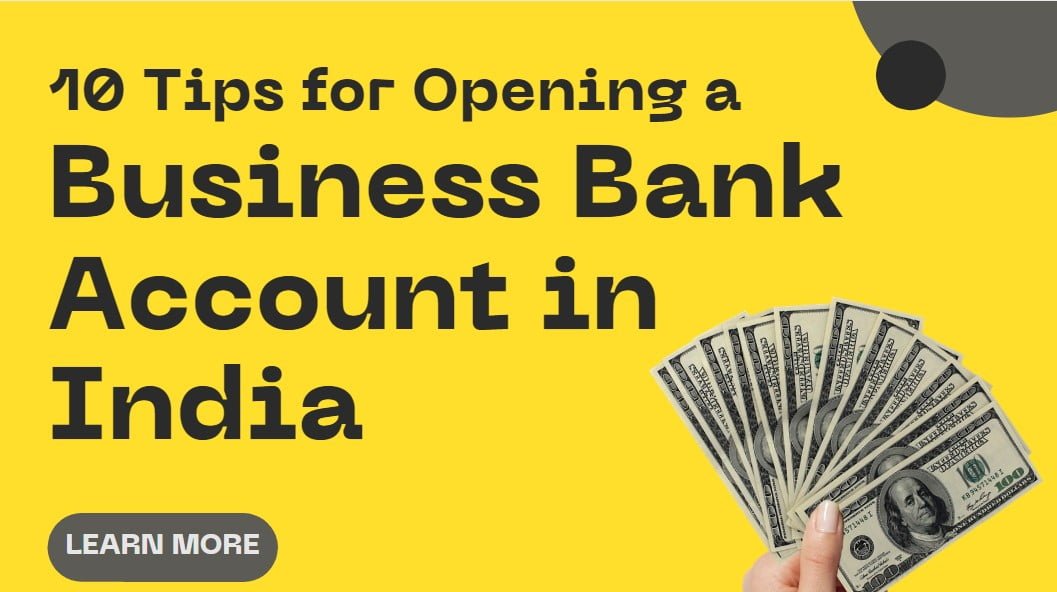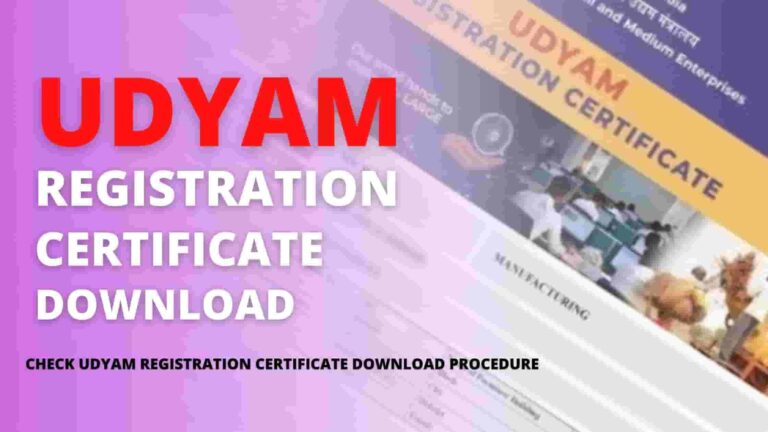A small business bank account is required if you own a small business. Here are 11 suggestions for selecting one and knowing how to choose a bank for your small business. If you are sole proprietorship read further to understand the tips for opening business bank saving accounts in India.
A perfect small business bank can assist you in keeping your finances in order and provide you with access to important financial products such as loans and credit alternatives. However, there are several banks available, ranging from national chains to neighborhood credit unions to online-only banks.
How to Choose a Bank for your small business in India?
So, how can you know which solutions are ideal for your company? Small Company Trends chatted with two small business banking professionals to obtain some helpful advice.
Examine Your Banking Practices
“The easiest approach to determine what you need from your bank is to look at the previous 6-12 months of your financial history,” Priya Mahato, company finance consultant for OlMax, wrote in an email to Small Business Trends (if you have an established business). If you are starting a new business, consider financial predictions for the next 6-12 months. This review will assist you in answering a variety of questions, including how much extra cash you expect to have on hand each month, how much you spend on a monthly basis, the volume of credit card transactions (if applicable), and whether you require additional capital in the form of a loan or line of credit.
Choose Between Online and Off-Site Banking
You should think about the bank’s location and how important it is to you. Are you looking for a bank that has a large number of branch locations that you can visit? Is it necessary that you have access to a large ATM network?
Or is an online bank sufficient? Low costs, higher interest rates, and mobile access are common features of an online bank.
However, there are no actual sites to visit, and customer service will only be available online or over the phone. In-person banking is therefore a better option if you want more personalised service.
There are now various online banks that provide services that may be beneficial to small company owners. You may enjoy the ease of electronic transfers, online bill pay, and even mobile check deposit with these accounts.
However, if you are dealing with a large amount of cash rather than digital funds, a bank with a nearby physical location is generally a better alternative. Abhishek Mukherjee also suggests going with a branch bank if you need a loan, because the face-to-face interaction can boost your chances of acceptance.
Learn how to make a project report for bank loan. Get your PMEGP Loan, MSME Loan, Mudra Loan by creating a detailed project report for bank loan.
Determine Which Features You Require
Different types of banks also have different qualities. A small, local bank or credit union, for example, may provide more customised service. However, national chains may provide greater convenience features.
Is there anything more that the bank you’re thinking about offering that makes it worthwhile? For example, can you manage your account using the bank’s mobile app, and do you have bill pay capabilities?
If you’re still in the early phases of your firm, you may see if your bank would give you a line of credit. It’s usually a good idea to have credit available before you need it, and you might be able to get better terms from a bank with which you already have a connection.
“Large, countrywide banks tend to provide a greater selection of products, more rewards, and cheaper costs, as well as the convenience of a large branch and ATM network,” adds Abhishek Mukherjee. However, large banks provide less customised service to small firms. Smaller community banks have a stronger relationship with local companies. Smaller banks are more flexible when it comes to loan applications, and they are more inclined to waive an overdraft or monthly charge if there are mitigating circumstances.”
In an email to Small Business Trends, Arielle Sonali Kumari, banking expert at NerdWallet, said, “Don’t ignore credit unions, which generally have low or no monthly fees and larger restrictions on cash deposits for business checking accounts.”
Fee Comparison
Most bank accounts include costs, such as monthly maintenance fees, overdraft fees, and wire transfer fees. These fees may appear to most consumers to be superfluous, but they are used to assist the bank pay for branch locations, customer service, and other bank services you use. The trick is to look for costs that aren’t very relevant to your banking requirements or that you can easily afford.
Many of these costs may be avoided by creating an online business bank account, by asking directly to the bank manager. However, if you prefer an in-person banking experience, this may not be the best alternative.
If you discover a bank you like that charges fees, see if you can have the costs waived. Some banks, for example, provide overdraft protection or a means to avoid monthly maintenance fees.
“They typically put restrictions on the amount of cash you may deposit for free each statement month, charging penalties on deposits that go over,” Sonali Kumari notes. These costs, which are typically approximately 30 cents per $100 above the deposit limit, may soon mount up.”
“They may limit the amount of transactions you can do within the account and charge a fee for each subsequent transaction,” she says. Once you’ve reached the limit, you might be charged as much as 40 cents each transaction.”
Consider Earning Potential
On the other end of the scale, you might be able to make some additional cash if you select a bank with good account interest rates. This is particularly important for persons who store or deposit big sums of money.
If you want to open a business savings account, you should consider a high-yield savings account. Finding the best bank with the best rates can allow you to make a little money while your savings grow.
An online bank is likely to provide the best interest rates. Axos Bank and Capital One, for example, provide high-interest savings accounts with low monthly fees.
“You might also be able to locate a bank that offers interest on cash deposits – you might as well earn that free money, as long as it isn’t negated by exorbitant costs,” Sonali Kumari says.
Visit a Bank Branch
“If you’re considering a physical bank, I certainly urge that the small company owner visit the bank in person,” Abhishek Mukherjee adds. You may talk about your sort of business, what products/services you need now and in the future, and have a realistic conversation about your average bank balances and credit history. Visiting the bank is also an excellent approach to determine whether it is subjectively the right match. You’ll be interacting with your bank a lot as your business demands change and expand, so you should get along well with the employees.”
Speak with Other Business Owners
“Sometimes, all it takes is a discussion with a fellow company owner to identify the proper bank for you,” Abhishek Mukherjee says. Find a company owner you trust who is in the same industry and runs a similar-sized firm in the same place. It’s important to understand more about if they like their bank.”
Examine Customer Service Reviews
If you don’t know any small company owners to inquire, you may learn more about what clients think about their banking experiences by using internet tools.
“Online ranking sites, such as J.D. Power and Associates assess banks in different regions on small company owner satisfaction,” Abhishek Mukherjee adds. This is a wonderful place to start for small company entrepreneurs who are unsure where to begin. OlMax also ranks the finest small business banks in many areas.”
Learn about Udyog Aadhar Registration, Process, Documents, Benefits – UAM as its very important for Small, Micro and Medium business in India. Every proprietor, pvt ltd, partnership company, limited company should apply for Udyam aadhar registration certificate to take additional advantages of the central government.
Consider Several Banks
There is no regulation requiring you to pick and keep with a single bank for all of your financial requirements. Some small company owners may discover that mixing and matching is advantageous.
“It’s also possible that you’ll end up picking multiple banks for different objectives,” Abhishek Mukherjee says. For example, one bank may have excellent checking and savings accounts, but another may provide superior business lending alternatives. Having several banking ties can benefit a small company owner.”
Don’t Be Afraid to Make a Difference
You can also change banks as your company expands and your needs change.
“If your banking needs change or you feel like your present bank isn’t up to pace,” Abhishek Mukherjee adds, “you can always transfer to a new bank at any stage of the company.” Don’t feel confined. Small company owners are sought after by banks since they have larger deposits than consumers. As a result, while selecting a bank, you are in control and should not compromise.`”
Minimum balance requirements
When you create a business bank account with some banks, you must deposit a certain amount of money. They may also ask you to maintain a minimum amount each month, failing which you may be charged a tiny monthly fee.
For example, you may be required to keep an average balance of $5,000 during the month or pay a $20 charge. You should learn about the minimum balance criteria and assess whether they are attainable for you.
If your checking account is primarily utilised for cash flow, maintaining a specific balance may be unrealistic. Many banks, thankfully, are ready to waive these criteria.
If you intend to create a business savings account, you should consider a high-yield savings account. Finding the best bank with the best interest rates can allow you to make a little money while your savings grow.
Introductory offers
Banks will occasionally give introductory discounts to entice new clients to create an account. For example, if you create a new business checking account with Chase, you may receive a one-time $300 incentive.
These discounts might be a wonderful incentive to acquire a business bank account. Simply read the tiny print to ensure that you satisfy the requirements.
Integrations
Your company bank account will most likely be used in conjunction with a variety of other business products. For example, you may use QuickBooks to issue invoices and manage spending. So you want to get a bank account that will combine with the features you use on a daily basis.
Before opening a business bank account, research the bank’s capabilities and if it integrates with your present accounting software. Accessing the appropriate integrations can assist you in streamlining your company’s finances.
Udyam registration centre wants to provide you with inspiration from well-known and recognised specialists. However, before making any business decisions, you should speak with an expert who can provide you with advice depending on your specific situation.
We are dedicated to assisting you in starting, running, and growing your small business.
Learn more about the
Advantages of MSME Udyam Certificate for a small business in India.
Benefits of Udyam Registration
New MSME Classification – Micro Small Medium Enterprises
Online Udyam Registration Portal
Benefits of new Income Tax e-filing Portal in Hindi – नई आयकर इ-फ़ाईलिंग पोर्टल के फायदे ।
Difference between old and new Income Tax e-filing Portal in Hindi
New Income Tax e-filing Portal नई आयकर इ-फ़ाईलिंग पोर्टल हिन्दी में ।
Udyam Registration Benefits in Hindi -उद्यम रेजिस्ट्रैशन सर्टिफिकेट के फायदे
Udyam registration certificate kya hai – उद्यम रजिस्ट्रेशन सर्टिफिकेट क्या है
Udyam Registration NIC Code List – MSME NIC Code List
Is Udyam Registration Mandatory?
Download Udyam Registration Certificate Now for Your Business.




